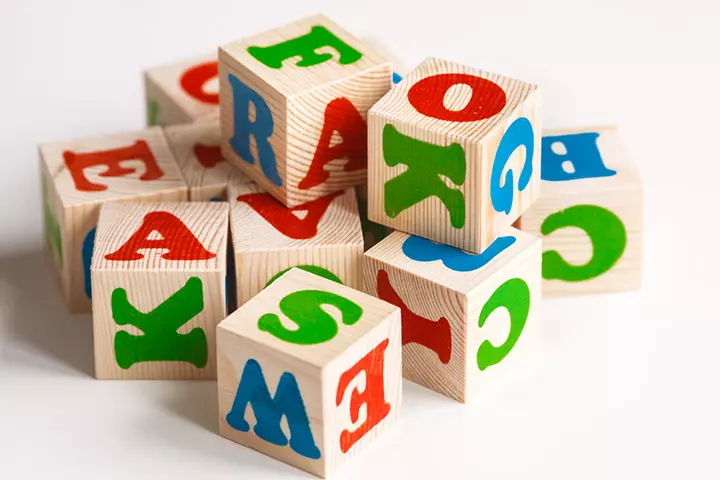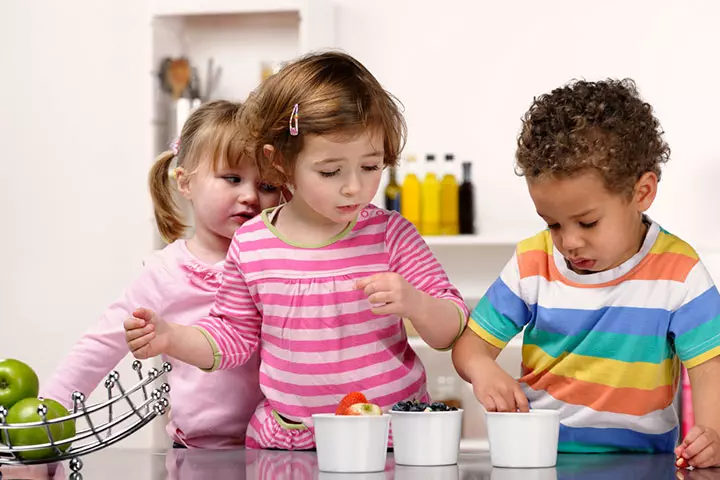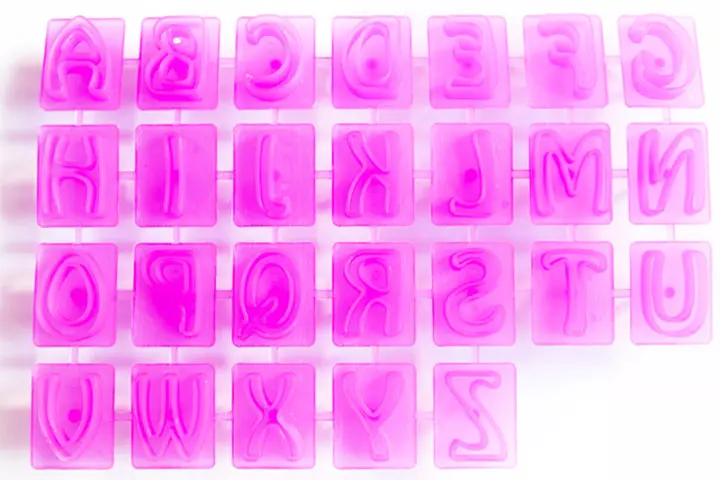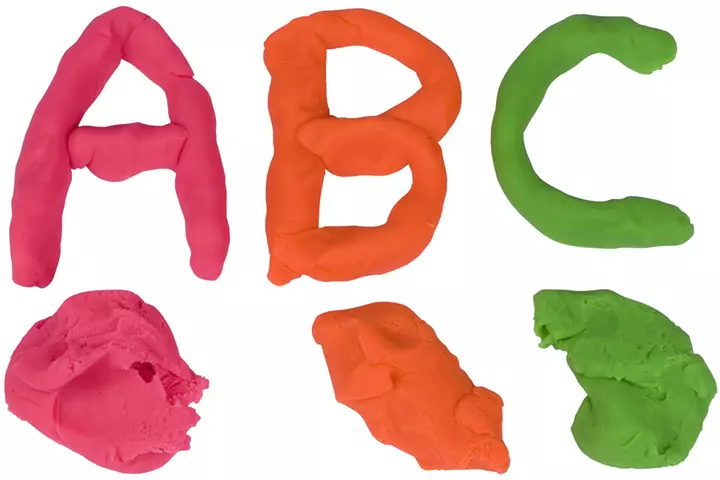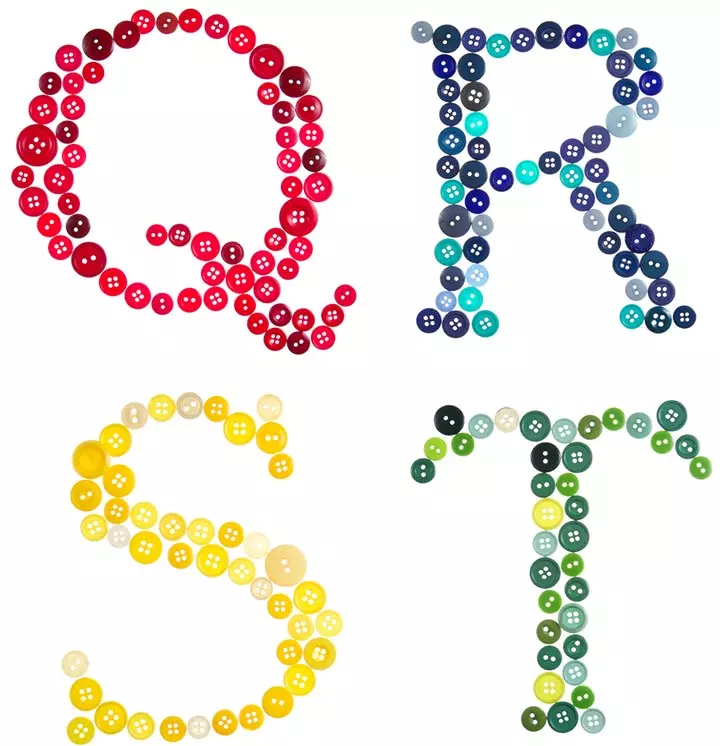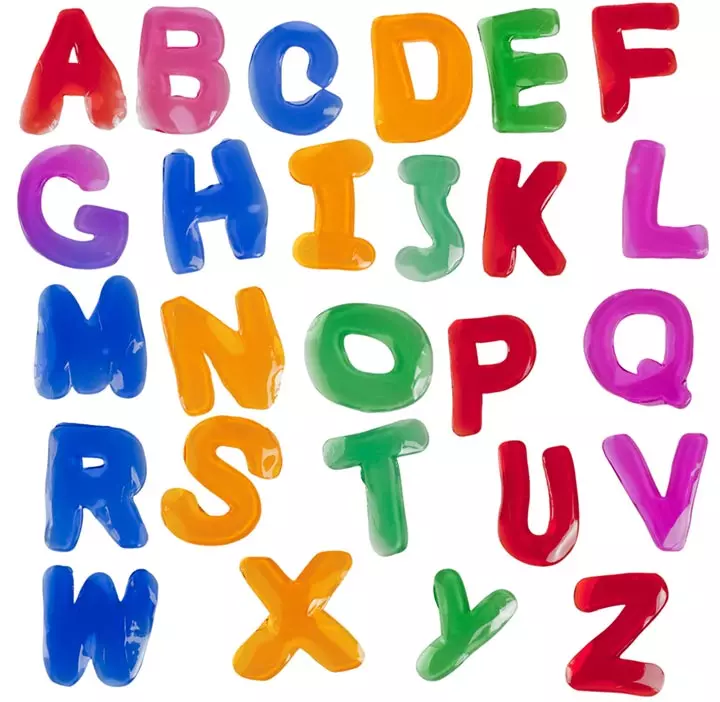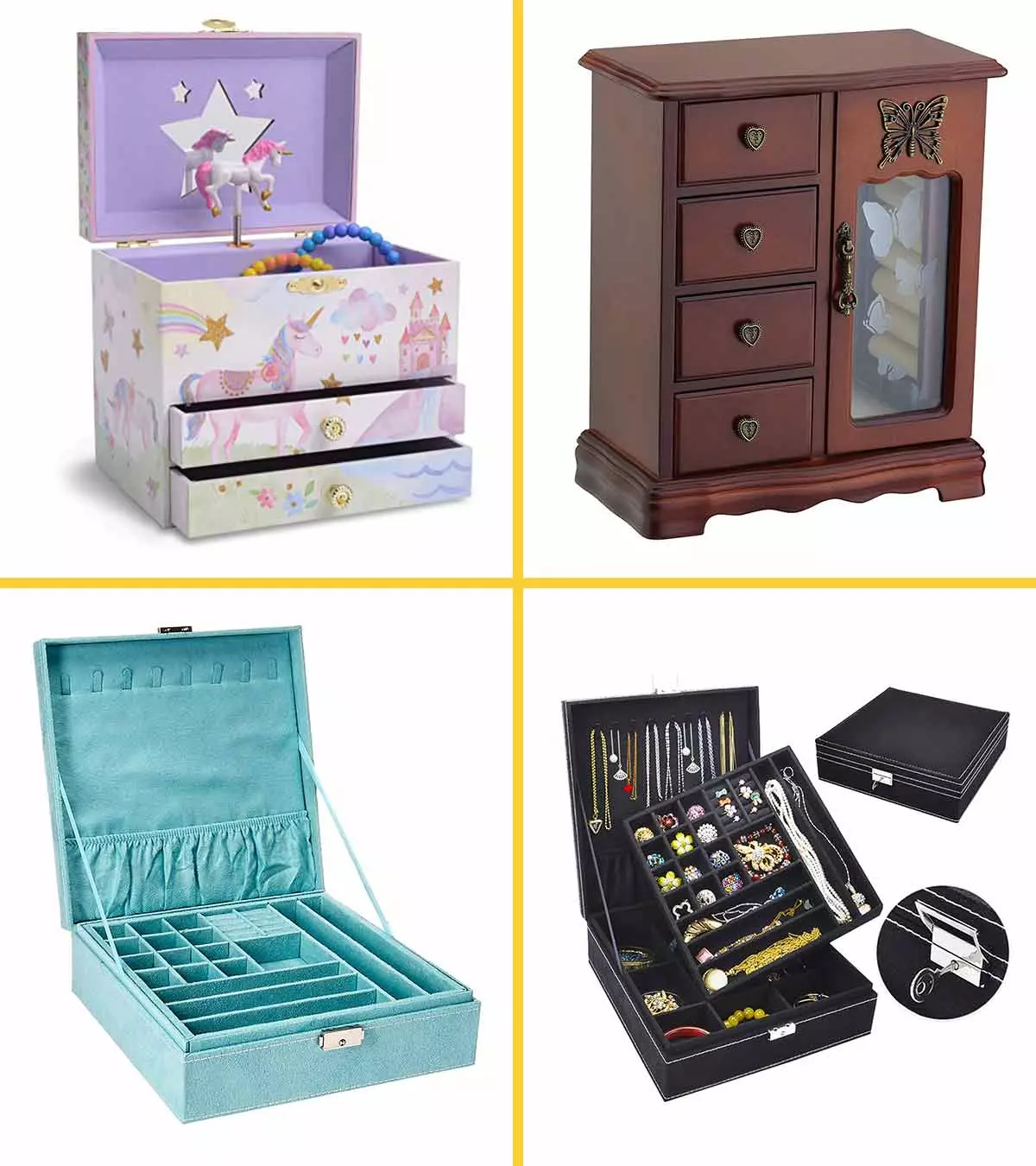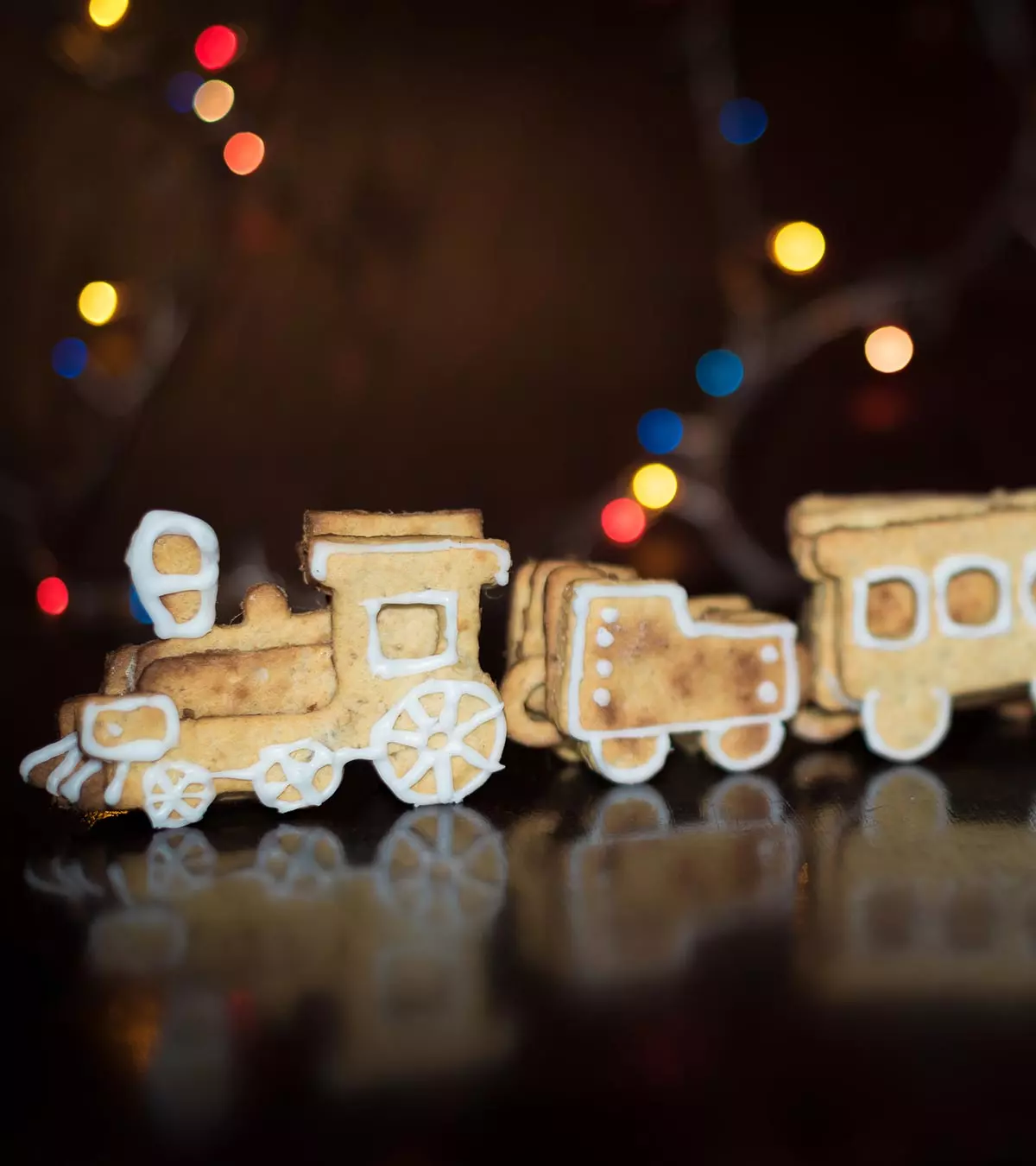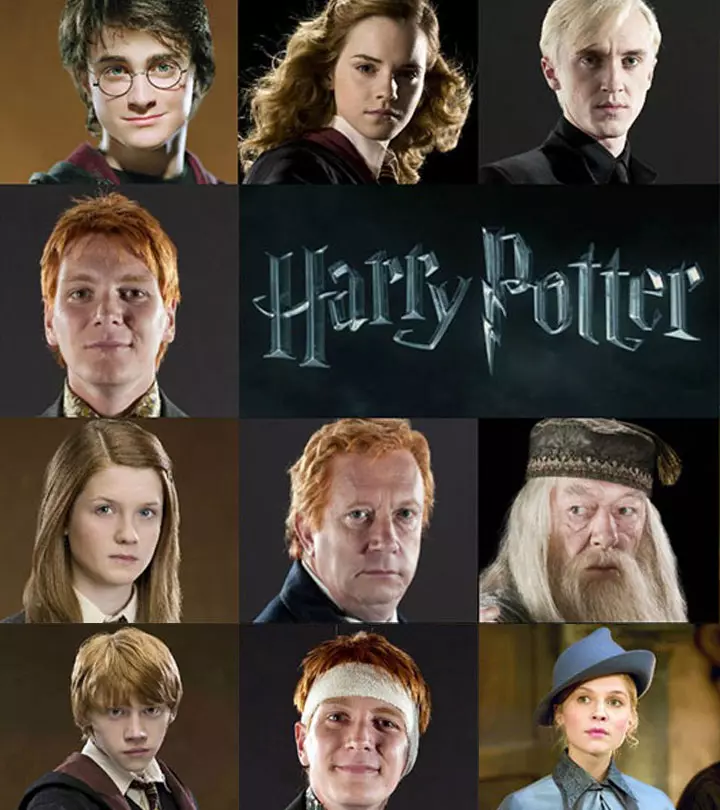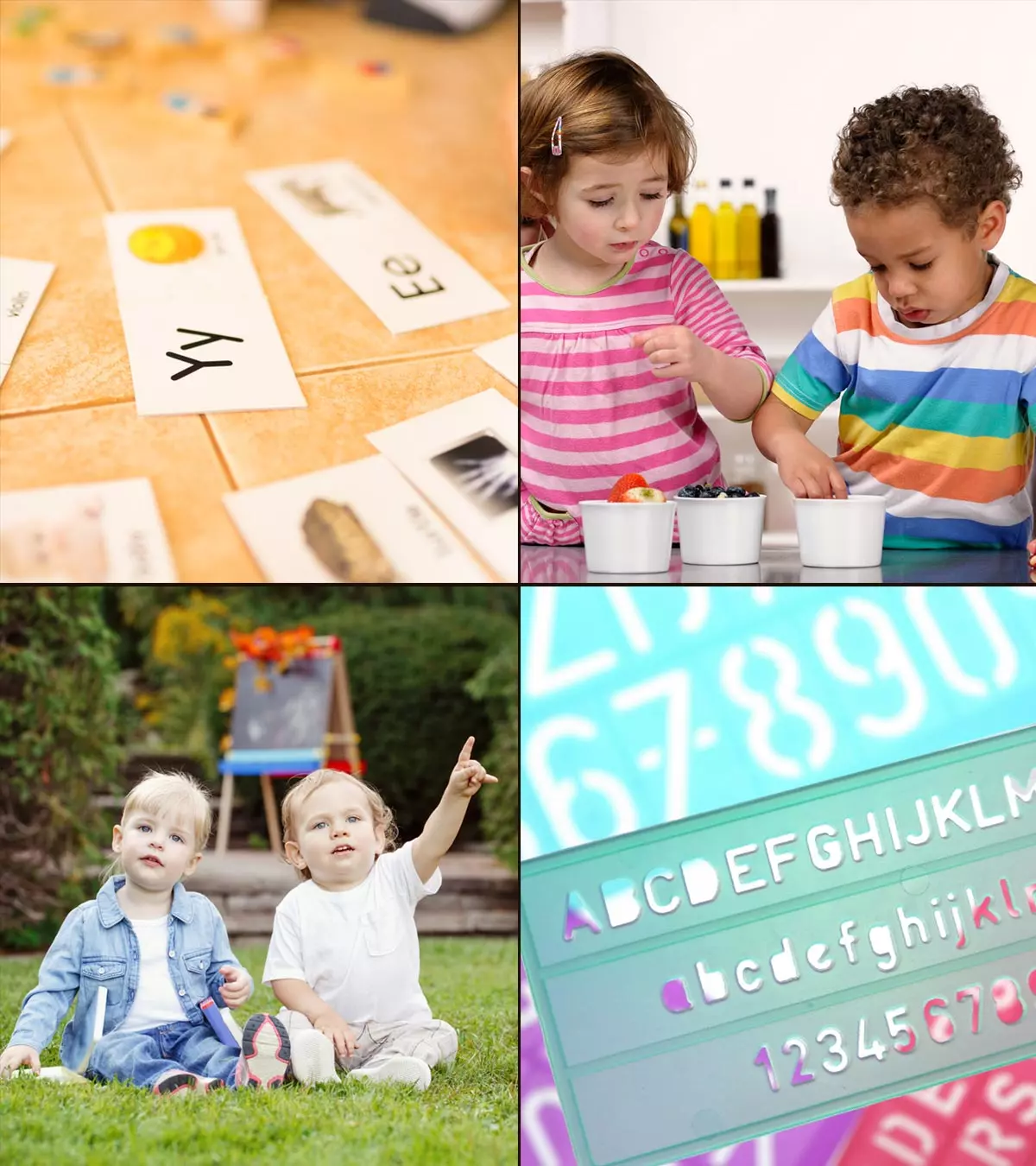

Image: Shutterstock
The learning pursuits of your toddler usually begin with letters. Alphabet activities for preschool help kindle the interest in their learning pursuits. Here are some of the best alphabet activities you can try with your little one. This journey is bound to have success and failures, but you can help them overcome that. Read on.
Top 15 Alphabet Activities For Toddlers
The below activities help the toddler remember the English alphabet better.
1. Match the letters
You will need:
Two sets of alphabet cards
A bag
How to:
- Buy a few alphabet set cards. Spread them on a table in rows and leave some space between each letter card.
- Transfer the other set of cards into the bag and shuffle them well.
- Ask your toddler to pick a card from the bag and place it with its match on the table. For example, if the baby picks up “N” from the bag, he has to place it with the “N” on the table.
- Pronounce the letter every time a card is removed from the bag so the toddler remembers its sound.
2. Learning with stencils
You will need:
- Alphabet stencil
- Colour pencils
- Paper
How to:
- Buy an alphabet stencil that has all the letters engraved in uppercase and lowercase.
- Sit with the toddler and trace out the letters on a piece of paper using color pencils.
- Trace the letters in the correct order from A-Z. Remember to also trace the lowercase form of the letters as they are equally important for a toddler to recognize.
3. Building block letters
You will need:
- Building block sets with 52 blocks
- Sketch pen
How to:
- Use a sketch pen to label each building block with a letter. Alternatively, you can also buy blocks which have printed letters.
- Shuffle all the blocks together and ask the toddler to stack the blocks in an alphabetic order.
- The level can be advanced by using the blocks to form simple words. For example, blocks with letters “M”, “A”, and “T” can be stacked atop each other to form the word “Mat”.
4. Fruit baskets
You will need:
- Five to six plastic baskets
- An assortment of fruits such as apples, pears, oranges, etc.
- Pieces of paper
- Pen
- Cello tape
How to:
- Write the first letter of a fruit’s name on a single piece of paper. For instance, if you have apples, pears, and oranges, then write “A”, “P”, and “O” each on a sheet of paper.
- Stick the individual sheets of paper on a basket each.
- Mix the fruits in another basket and give it to the toddler. The toddler should put the fruits in the corresponding basket.
- Say the name of the fruit if the little one does not remember it. You can alternatively pick a letter basket and say, “A for…?”. The toddler would place the correct fruit in its corresponding basket.
- This is an excellent ABC preschool activity to train the toddler to remember letters. You can even play the game with vegetables or daily objects. The more the items, the more letters the toddler learns.
5. Painting with a cookie-cutter
You will need:
- Letter-shaped cookie cutters
- Colour palette
- Water colours
- Chart paper
How to:
- Pour some colors on a palette. Dip the cookie cutter on the palette to grease it with color. Make an impression of the letter on the chart paper. Ensure that you are going in an alphabetical order. Repeat on another chart paper to help the preschooler revise the letters.
6. Writing on the flour
You will need:
- Dinner plate
- Wheat flour
How to:
- Put some wheat flour on the plate.
- Draw a letter with your index finger while saying it out loud.
- Spread the flour with your palm so that the previous letter goes away and you can trace a letter again. Now your toddler will draw the letter.
- Guide the toddler if he gets it wrong. Repeat the activity with lowercase letters as well.
7. Newspaper alphabet
You will need:
- Old newspapers or magazines
- Round-tip scissors
- Chart paper
- Glue
How to:
- Take an old newspaper sheet and tell your toddler the letter he has to look for in the paper. You could also help him in identifying the letter.using a safe round-tip scissor.
- Paste the letters in alphabetical order on the chart paper.
8. Play dough letters
You will need:
Play dough in assorted colors
Chart paper
How to:
- Roll play dough of different colors and make letters out of it.
- Use different colors to make the same letter. For instance, you could use three different colors to make different lines in “N”.
- Put these letters on a chart paper to complete the activity. This is a simple alphabet learning activity for preschoolers.
9. Group alphabet play:
You will need:
- Group of toddlers
How to:
- Toddlers stand in a queue or a circle.
- The first toddler shouts the first letter of the alphabet and the next toddler continues with the alphabet chain.
- This goes on until they are done with the letters. You could play this splendid activity at a playschool.
10. Letters on the string
You will need:
- Alphabet flashcards
- Cloth clips
- Nylon string
How to:
- Alphabet flashcards have a letter on each card. Clip these cards in alphabetical order between two points on a wall or a stand.
- Take off a few cards from the string and ask your toddler to pick the missing letters and string them on. You can also jumble the order of letters. The toddler will have to unclip and reorganize the letters in the alphabetical order, and clip them.
11. Matching the flashcards
You will need:
- A group of toddlers
- Two set of alphabet cards
How to:
- Choose the flashcards that have both uppercase and lowercase characters and give each toddler a card.
- Divide the toddlers into two groups – one group with uppercase letters and the other with the lowercase letters. Each toddler looks for their respective counterparts in the other group.
- The fastest toddler group who matches the flashcards wins the game. You could play this game with a bunch of toddlers at birthday parties or at preschool.
12. Button letters
You will need:
- Plastic buttons of assorted colors
- Chart paper
- Sketch pen
- Glue
How to:
- Let the toddler write the alphabet on a chart paper in a large font. You can even write in block letters.
- Stick the buttons on the letters in such a way that they look like the letter beneath.
- Repeat the activity for practice, but this time you can do so without writing the letter underneath.
13. Letter hopscotch
You will need:
- Colored chalk set
How to:
- Draw the hopscotch pattern on the ground and label each box with letters. You could also write letters randomly on the ground separated by small distances.
- The toddler steps on a letter and looks for the consecutive one. For example, if he is standing on “D” he will look for “E” and then jump on.
- Guide the toddler whenever he is confused and is unable to find the next letter.
14. Nut and bolt
You will need:
- Plastic nut and bolt set
- Sketch pen
How to:
- Use the sketch pen to label each nut with an uppercase letter and bolt with lowercase letters.
- Shuffle the nuts and bolts in different piles.
- The toddler picks a nut, looks at its letter, and searches for the bolt with the corresponding lowercase letters. Once he does, he winds the bolt and nut together.
The toddler will have a lot of fun looking for the nuts and bolts, and also learn along the way.
15. Jelly letters
You will need:
- Alphabet ice tray
- Jelly
How to:
- Mix the jelly powder with water, heat as per manufacturer’s instructions, and then pour the liquid in the alphabet ice tray/mold.
- Refrigerate till the jelly sets.
- Arrange the letters on a tray and let the toddler align these enticing and edible letters in an order before slurping them down!
Activities such as these help in boosting the preschooler’s letter memory. And to make it easier for the toddler, we present a few tips.
4 Tips To Help Learn The Alphabet Better
Parents can use these tips to make the alphabet learning easier.
- Pronounce letters and use them in words: Parents must pronounce every letter when teaching it to the toddler and then use it in a word. This way the toddler will learn the correct pronunciation and example words.
- Teach through alphabetical order: Letters are best learnt when they are taught in the alphabetical order. It helps in memorizing the letters easily.
- Acquaint the preschooler with uppercase and lowercase: Teach both uppercase and lowercase letters with the correct writing style for each. Some letters become distinct in their lowercase versions, which may confuse a preschooler who is learning them for the first time. Practicing both the cases together helps better recall later.
- Form words when the toddler has advanced knowledge: You can teach advanced words to your toddler every day. This works better with older toddlers who can eventually form sentences.
Frequently Asked Questions
1. At what age should a child recognize the alphabet?
Most children might be able to recognize letters between the ages of two to four. Usually, children can identify letters of the alphabet and their order of appearance by four (1).
2. What are factors that affect learning letter names?
The ease of learning and remembering letter names may vary among children based on several factors. A few research studies demonstrated that factors such as a letter’s way of articulation, association with one or more kinds of sounds, position among the alphabet, and shape might significantly impact learning letter names and sounds (2).
The alphabet is among the first things preschoolers learn and is the foundation of their future relationship with language. Alphabet activities for preschool thus go a long way in ensuring these concepts are well-understood by young minds. Moreover, many of these activities can be arranged using minimal resources or readily available ones. From writing on flour to forming letters with play dough, these activities will keep your preschoolers engaged while helping them revise the alphabet. So pick the activities your child will most likely enjoy and make the most of their playtime educational.
References
- When do kids know the alphabet?
https://www.understood.org/en/articles/when-do-kids-know-the-alphabet - Shayne B. Piasta and Richard K. Wagner; (2010); Learning Letter Names and Sounds: Effects of Instruction Letter Type and Phonological Processing Skill
https://www.ncbi.nlm.nih.gov/pmc/articles/PMC2978809/
Community Experiences
Join the conversation and become a part of our nurturing community! Share your stories, experiences, and insights to connect with fellow parents.
Read full bio of Harshita Makvana




